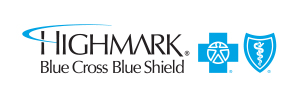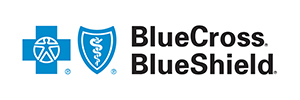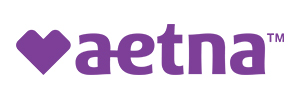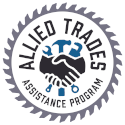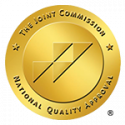One Day at a Time – 10 Things to Make Part of Your Daily Routine to Support Your Sober Lifestyle
If you or someone you love has struggled with substance abuse, you already know that staying sober requires much effort. Establishing a daily routine can give you the stability and consistency essential for recovering from addiction. But how do you develop a healthy daily routine in recovery? Here are a few of our tips.
Why Daily Routines Are Key in Recovery
A daily routine can strengthen your recovery journey in more ways than one. When you establish a daily routine, you can give yourself a sense of purpose in everyday activities as you keep yourself busy. Having a pattern to fall back on also helps better equip you against stress, which is one of the common reasons for relapse. Building structure can protect you against anxiety from unexpected events. Additionally, a routine can help you improve your self-esteem. Each time you complete one of your goals in life, you prove that you can effect change and control your life.
How to Develop a Routine in Recovery
Just as everyone’s road to recovery looks different, so will your daily routines. You can even start building a healthy routine today. While the following tips are helpful starting points, finding which way works for you is the most important thing. Here are some ideas on how to get started.
1. Eat Healthily
One of the essential things in recovery is prioritizing a healthy diet. You’re healing your body, and for that, your body needs fuel. Taking small steps to keep your diet balanced can go a long way, from drinking water first thing in the morning to planning and preparing healthy snacks to fall back on throughout the week. Healthy meals support you in your journey of sobriety.
2. Take Up a New Hobby
A hobby can be a double hitter in building a routine for recovery. Not only does it provide a constructive distraction but seeing yourself improve at your chosen hobby can boost your sense of agency and accomplishment. When it comes to learning this new skill, help yourself succeed by setting specific dates for milestones. These daily activities can help keep you on track and give you something to work towards each day.
3. Fill Your Time Constructively
Having structure is indispensable when it comes to recovery. While you were in rehab, this was probably provided for you. Now that you are back in the outside world, you must give yourself things to do that you can accomplish every day. Filling your time with constructive activities or mindful space will keep you accountable to yourself. It can also give guidelines that keep you from resorting to substance abuse or triggering situations throughout the day. Make sure that your goals aren’t too challenging but aren’t too easy to achieve.
4. Exercise Daily
Exercise is one of the quickest ways to feel the body’s natural elevation. Not only will it release endorphins, but daily physical activity can improve your body image, reduce cravings, and even give you more energy. These natural benefits work together to strengthen the body and mind and reduce relapse risk. Taking part in regular running, yoga, or strength training can do wonders for your health, among other forms of exercise. Consider finding a workout buddy to keep you accountable if it sounds overwhelming. And remember, there’s no “right” form of exercise. Find a way to move your body that feels good and accessible for you.
5. Get Enough Sleep
Regularly missing out on sleep can lead to chronic health problems and further weaken your body. As such, it’s imperative to ensure that you sleep consistently to support your physical, mental, and emotional health. If you find this difficult, start by setting a regular bedtime and sticking to it. Try making your bedtime routine enjoyable. Perhaps you add a relaxing scent or put on calm music. Anything that helps you look forward to winding down for the night can help.
6. Make To-Do Lists
Listing your daily tasks can help you manage your time efficiently and reduce stress. Try making your lists the night before–perhaps you can even add this to your bedtime routine. It doesn’t have to be fancy, just something you can easily understand and use. Checking things off your to-do list can add to your sense of accomplishment!
7. Try Meditation
Meditation is a way to clear your mind and reduce stress. Don’t be discouraged if you find it difficult to focus at first. Like anything, it comes with practice. If you’re not sure where to start, there are even meditation apps to help you on your way. Meditation can look different for everyone; whether you participate in a live, guided meditation, pore over pages from sobriety literature/text, practice yoga, or something else, everyone can center their mind and find a piece of calm in the day-to-day. As your sobriety journey evolves, so will your meditation.
8. Call Your Sponsor/Mentor
In any area of life, having a mentor is a fantastic tool. By speaking with your mentor or sponsor, you can share your struggles with someone who understands. What’s more, you can receive encouragement. A sponsor or mentor is invaluable in learning to live a sober life and maintain your mental health.
9. Participate in Support Groups
Similar to having a sponsor or mentor, a support group can give you encouragement and accountability. Support groups can take different forms, from an AA group to a church group to a yoga group; having people to meet is a helpful thing to add to your weekly routine. The resulting relationships can add color and meaning to your sober lifestyle.
10. Start a Gratitude Journal
A gratitude journal can be an easy place to start writing your daily meditations. At the end or beginning of each day, take some time (even as little as 10 minutes) to write down what you’re grateful for and what positive events happened. Such a simple routine can lower stress levels and provide daily affirmation. It can also help you focus on all the things that truly matter.
Tips on How to Stay Sober
Find Your Unique Triggers
An essential part of preventing relapse is identifying your triggers–or the people/places/things that push you back towards craving or using substances. It’s also important to stay aware of your internal triggers, such as emotions or thoughts related to substance use. Some of the common triggers can be:
- People still engaging in substance use
- Emotional upheaval
- Troubles with relationships
How to Recognize Relapse Warning Signs
A relapse can come at you unexpectedly if you don’t watch for the warning signs. The slippery slope to relapse starts long before you touch that drink or drug and contains three phases: emotional relapse, mental relapse, and physical relapse. Warning signs can include:
- engaging in compulsive behaviors
- avoiding rational thinking
- behaving irresponsibly
- engaging in addictive thinking patterns
The Benefits of a Sober Living Program
While enrolled in a rehab facility, you may have become accustomed to waking up early, eating breakfast, meditating, and attending daily support groups. When you transition back to living life independently, keeping up that routine may be challenging without your peers and counselors providing accountability.
Taking part in a sober living program is a way to give yourself the support that will help you to have a lifelong recovery. Learn more about Sobriety Solution’s Partial Hospitalization Program and other treatment programs and start your journey to recovery today! The road to recovery is greatly aided by maintaining a healthy routine, and sober living can help. Develop a daily routine to develop long-term sobriety and walk in freedom today!




